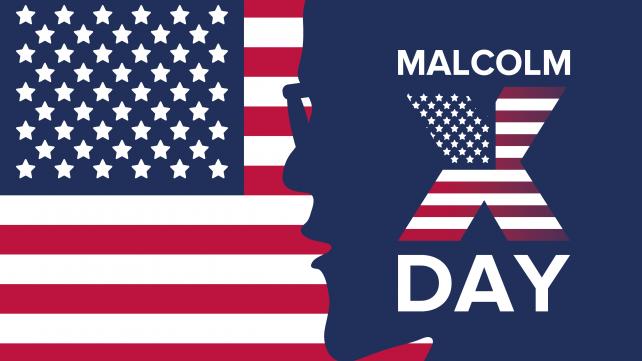
The legacy and power of El-Hajj Malik El-Shabazz (Malcolm X) has lasted for generations. The media and popular culture attempt to confine and define his deeds and words as that of an outspoken, confrontational civil rights leader working solely on behalf of African-Americans. These attempts to present Malik Shabazz as solely a political leader ignore how his religious viewpoints evolved producing that political view. Thus the reliance on referring to him as Malcolm X rather than his full name Malik Shabazz.
Malik Shabazz's true legacy is that of a social reformer for human rights. In fact, one of the most well-known quotes from him demonstrates how much he valued the rights and recognition of all people as human beings.
“We declare our right on this earth to be a human being, to be respected as a human being, to be given the rights of a human being in this society, on this earth, in this day, which we intend to bring into existence by any means necessary.”
That focus of that particular quote has always been on the last phrase “by any means necessary”, which white Americans always construed as implied violence. But an examination of the words of Malik Shabazz demonstrates a healthy balance of rejecting oppression in the fight for freedom and calling for universal brotherhood and respect as he points out that it is neither natural nor wise for people to just blindly accept injustice.
“You don’t have to be a man to fight for freedom. All you have to do is to be an intelligent human being.”
He was not as divisive as some would like to propagate because he was always looking for a solution. He went to Selma, Alabama to help Dr. Martin Luther King, not be contentious. He knew that the civil rights movement was in fact moving, and that things could not and would not stay the same. Even so, he always gave the option for mutual consultation and agreement.
“A new world order is in the making, and it is up to us to prepare ourselves that we may take our rightful place in it.”
“One day, may we all meet together in the light of understanding.”
He understood that we were all one human family that could and should work together for mutual gain. Therefore, he preached to those who would listen that human beings are substantial, human beings are important, and that human beings need to be respected.
“I believe in human beings, and that all human beings should be respected as such, regardless of their color”
As he spoke about injustice in a frank, uncompromising manner, the media tended to distort his true meaning in an effort to deflect the true message. Thus, the perception by white America that he was a racist against them was effectively placed in the public’s mind.
“Speaking like this doesn’t mean that we’re anti-white, but it does mean we’re anti-exploitation, we’re anti-degradation, we’re anti-oppression.”
His understanding of the universality of mankind was not something that could be put into context based on the life he had lived and the condition of America’s poor and exploited in the 1950s and 60s. However, as he grew in religious knowledge, he began to appreciate all people and was honest. He also let people know that the change of his perspective was based more on a spiritual awakening than a political one.
“People don’t realize how a man’s whole life can be changed by one book.”
In fact, as his understanding and practice of true Islam grew, there was a softening of his spirit because Malik Shabazz could see the guidance and light from Islam. His work expanded as a human reformer and social activist for all oppressed people – not even those just in America.
“No man has believed perfectly until he wishes for his brother what he wishes for himself.”
“True Islam taught me that it takes all of the religious, political, economic, psychological, and racial ingredients, or characteristics, to make the Human Family and the Human Society complete.”
Pictures of El Hajj Malik Shabazz speaking at a podium looking grim or the infamous photo of him standing by a window with a rifle were meant to portray him as violent and nationalistic. However, although America attempts to define its leaders, especially those who emerge from amongst the people, it has been the people themselves who have flooded the media with photos of him laughing or thinking or being with his family.
“Hatred and anger are powerless when met with kindness.”
It was the people who began to realize that the message of El Hajj Malik Shabazz transcended just the “Black” experience in America. He began to have supporters not just from America’s other ethnic minorities, Hispanic and Native America, but his message was worldwide. As America tried to refocus the world and pigeonhole him as having selfish motives for only those of his own race, he was quick to reinforce that he stood up for all of humanity.
“I believe in recognizing every human being as a human being–neither white, black, brown, or red; and when you are dealing with humanity as a family there’s no question of integration or intermarriage. It’s just one human being marrying another human being or one human being living around and with another human being.”
Malik Shabazz knew that his words were a call to action. His religious convictions allowed him to be humble in this knowledge.
“Yes, I have cherished my ‘demagogue’ role. I know that societies often have killed the people who have helped to change those societies. And if I can die having brought any light, having exposed any meaningful truth that will help to destroy the racist cancer that is malignant in the body of America—then, all of the credit is due to Allah. Only the mistakes have been mine.”



Add new comment